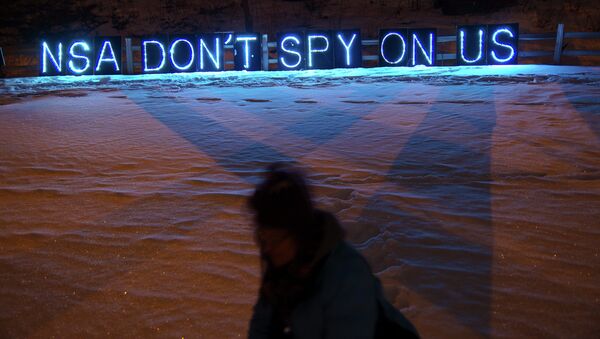The National Security Agency (NSA) cited a “classification review” in releasing quarterly reports to the President’s Intelligence Oversight Board from 2001 to 2013. However, the release was in response to a Freedom of Information Act request by the American Civil Liberties Union.
The NSA may spy on foreign communications under U.S. law but are heavily restricted when targets communicate with U.S. citizens or when one end of the correspondence or phone calls originate or end in the U.S.
However, the documents in the NSA’s Christmas Eve dump suggest that those restrictions were ignored fairly often.
The reports include “descriptions of specific incidents which may have been unlawful or contrary to applicable policies,” the NSA said, on its website.
Extensive redactions make it difficult to identify just how many violations of protocol the NSA committed but it is clear they were numerous. The remaining vague language also makes it difficult to determine how serious the transgressions were.
In some of the incidents, it appears that the NSA analysts were well aware of the fact that their actions were illegal — or at least they should have been.
In one such case, an NSA analyst “searched her spouse’s personal telephone directory without his knowledge to obtain names and telephone numbers for targeting,” according to one report.
As in other cases, there are no indications of reprimand, only declarations that the illegal surveillance was stopped. In the above case, the report from 2012 simply says the analyst was “advised to cease her activities.”
In other incidents, it appears that the analysts were inadequately trained regarding legal surveillance such as in the case of an NSA analyst who searched “a U.S. organization in a raw traffic database without formal authorization because the analyst incorrectly believed that he was authorized to query due to a potential threat.”
That surveillance found nothing suspicious, the report noted without revealing any information about whether the domestic organization provided any cause for its communication to be intercepted in the first place.
“The vast majority of compliance incidents involve unintentional technical or human error,” the NSA said in a statement along with the release of the documents.
However, without specifics, the statement noted that, “In the very few cases that involve the intentional misuse of a signals intelligence system, a thorough investigation is completed.”
The reports also suggest that when records and information are obtained illegally, such “non-compliant data” is purged.
However, many have argued that a lack of oversight means such claims by the NSA can’t be verified.
— Help Edward Snowden (@HelpSnowden) November 4, 2014
The expanding surveillance state in the U.S. became a national topic after former NSA contractor Edward Snowden revealed the intelligence agency regularly spies on domestic targets in what many people believe to be in contravention to the U.S. Constitution.


